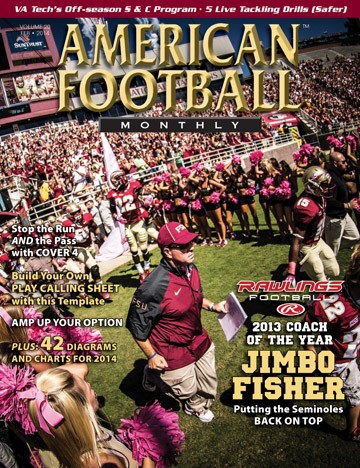Article CategoriesAFM Magazine
|
Speed Report: The Virtues of Off-Season Conditioning - Is It Good for Football Speed?by: Dale BaskettFootball Speed Specialist © More from this issue To every football coach, the word conditioning means getting fit to play or producing stamina for performance situations. Conditioning is, in reality, a performance trait, most useful during the season. It can cut into your periodization schedule in the off-season, when in reality, it’s not relative to development for that time frame. You should center your off-season training on speed and power, not on conditioning. Your skills, speed, flexibility, and athletic movement speed and control will then be significantly advanced by the start of season. The title “Strength and Conditioning Coach” in the collegiate world is now being modified to “Athletic Performance Director.” The word “conditioning” is a small part of the total equation necessary during the off-season for training. Some coaches use a conditioning reg....The full article can only be seen by subscribers.
|
|
|||||||
| HOME |
MAGAZINE |
SUBSCRIBE | ONLINE COLUMNISTS | COACHING VIDEOS |
Copyright 2026, AmericanFootballMonthly.com
All Rights Reserved





